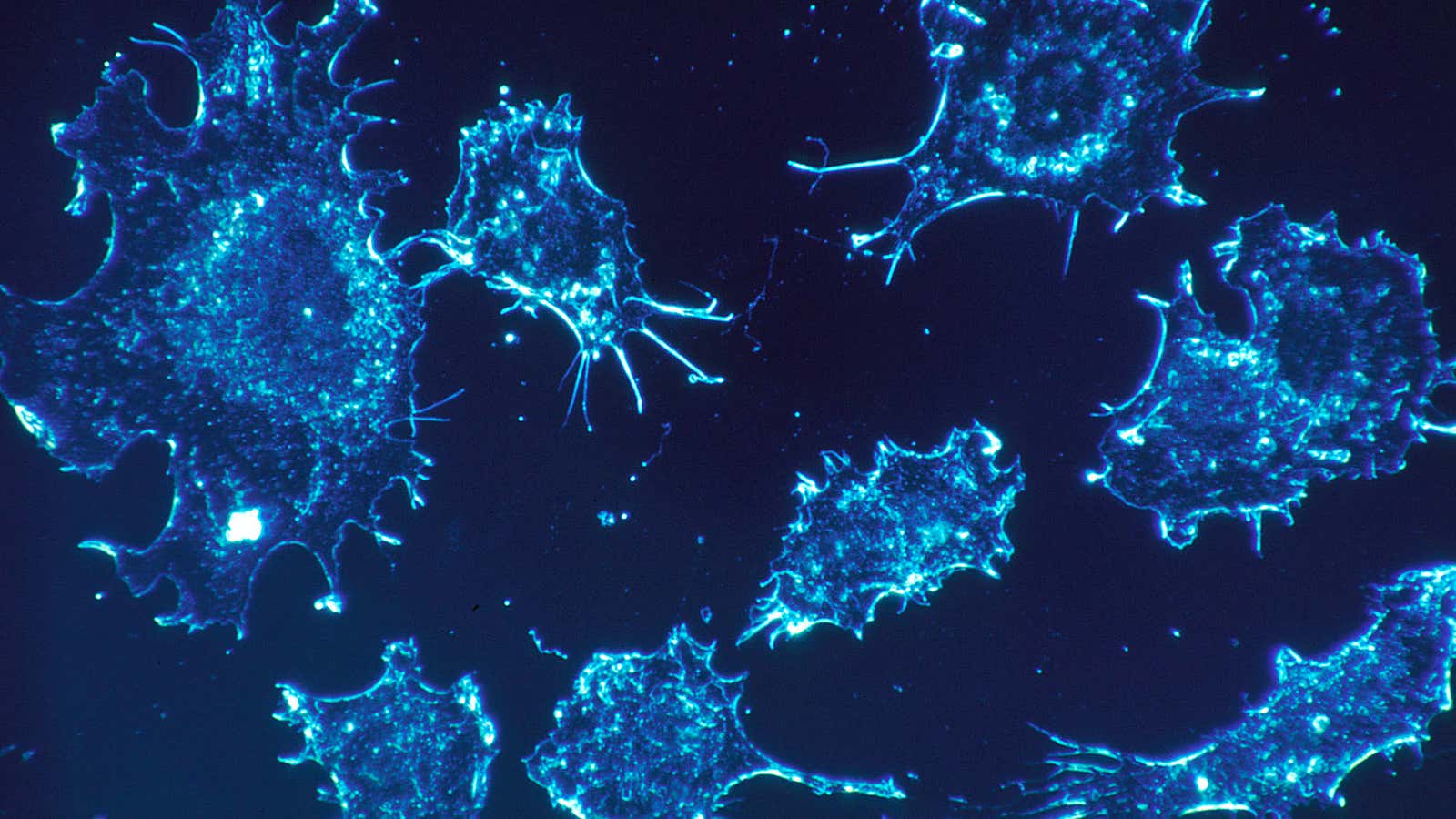Cancer cells are like normal cells—they just grow abnormally. That is why treatments that selectively try to get rid of cancer cells while protecting normal cells don’t work that well. What if we could fix the abnormal growth without having to kill the cells?
That is what a team of researchers at the Mayo Clinic have just done. Their lab tests on human cells from breast and bladder cancers show that, with a relatively simple intervention, they can program cancer cells to grow normally again.
A new body
Most cells in your body are slowly replaced by new cells through the process of cell division. During this complex process, hundreds of things need to go just right. When they do, the final step is to instruct the cell to stop dividing. In cancer cells, the final step is missed, and that is what results in a tumor.
Mayo Clinic researchers found that the final step is regulated by biological processors called microRNAs. These instruct the cell to make a protein called PLEKHA7 which, in just the right amount, stops cell division.
In cancer cells, the levels of PLEKHA7 aren’t right. When the researchers injected microRNAs into cancer cells, the levels of PLEKHA7 were restored and the abnormal growth stopped. The results of the study are published in Nature Cell Biology.
“This is an unexpected finding,” Chris Bakal, a specialist at the Institute for Cancer Research in London, told The Telegraph. “Normal cells touch each other and form junctions, then they shut down proliferation. If there is a way to turn that [process] back on, it would be a way to stop tumors from growing.”
Of course, the research done in human cells in a lab is a long way from being used as a treatment for cancer. Still, with other potential ways of turning back cancer cells to normal cells being developed, the hope for a cure has never been higher.
